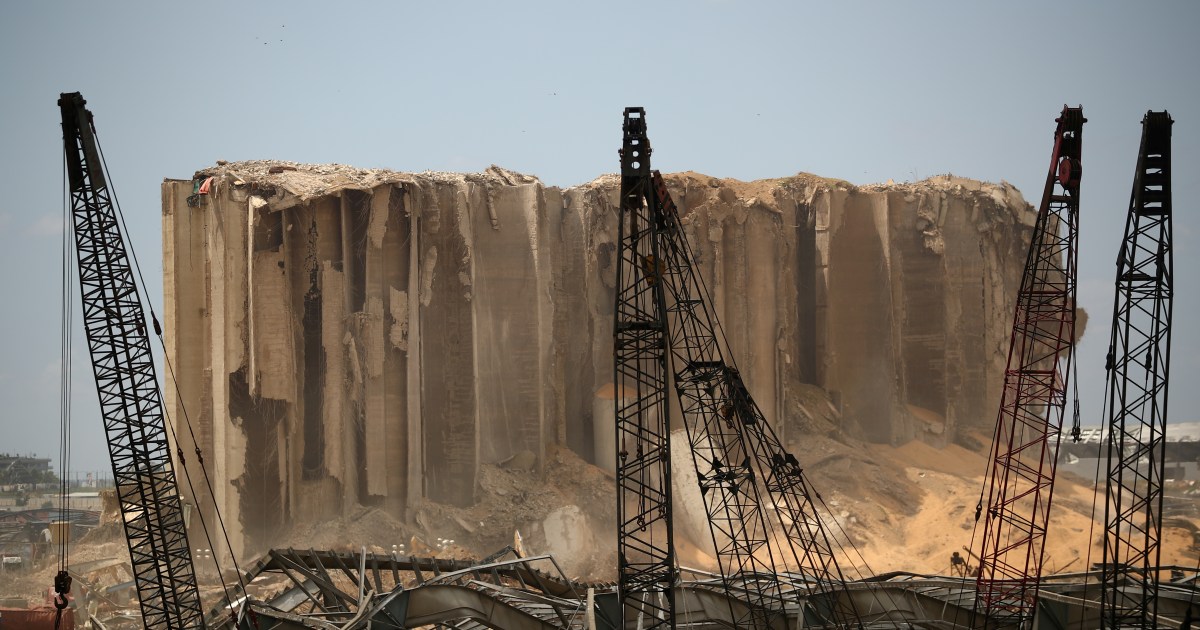The United Nations called on the authorities in Lebanon to speed up the formation of the government and restraint in dealing with the demonstrators, while Germany stressed the importance of avoiding a long period of government vacuum, and contacts between the political forces continue to form an understanding on the form of the new government and the name of its president.
The spokesman for the Secretary-General of the United Nations, Stephane Dujarric, expressed his rejection of any violence against the Lebanese demonstrators, adding that the international organization calls for the security forces to show restraint and allow people to demonstrate peacefully in all countries.
The Secretary-General of the United Nations, António Guterres, was quoted as saying that the people of Lebanon want to be heard, so it is important that people be allowed to express freely and peacefully.
On Tuesday evening, confrontations between protesters and security forces were renewed near one of the entrances to Parliament in downtown Beirut, after angry protesters tried for the fourth consecutive day to reach the parliament headquarters.
The UN Special Coordinator for Lebanon, Jan Kubisch, stressed the importance of avoiding a long period of government vacuum in Lebanon, and urged to accelerate the formation of a government that meets the aspirations of the people and enjoys their support.
He added that the new government must be able to put an end to corruption and address the many urgent challenges facing the country, stressing the importance of addressing urgent humanitarian needs and undertaking the necessary reforms to restore the confidence of the people and the international community in their support for Lebanon.
In the same context, German Foreign Minister Heiko Maas said that making wide-ranging changes is a condition for providing long-term aid to Lebanon, adding - during a visit he made to the port of Beirut - that Lebanon is currently in need of a strong start and deep economic reforms.
And the German Foreign Minister handed the Lebanese Red Cross a check worth one million euros, as part of the first immediate aid pledged by Berlin.
Maas pledged to deliver German aid directly to citizens, through the United Nations and through experienced relief organizations.
While dozens of Lebanese yesterday, in the stricken port and in the center of the capital, commemorated the one-week anniversary of the port explosion, the army said that its units continue to remove rubble and rubble at the site of the explosion.
He added in a statement that his units have started work in the most affected area adjacent to the port, after which the third stage of rubble removal operations will start in the least affected areas.
And the Lebanese Ministry of Health announced that the number of victims of the explosion rose to 171 dead, about six thousand injured, in addition to more than thirty missing.
Meanwhile, contacts continue between the Lebanese political forces, to formulate an understanding on the form of the new government and the name of its president.
While the discussion is limited to a neutral government and a national unity government, a group of names are being proposed to head this government, at a time when talk about the demand for early parliamentary elections has receded.
Commenting on some news about the shortage of supplies, the Lebanese Economy Minister in the caretaker government, Raoul Nehme, said that the wheat stocks in the country would suffice for a month.
He added that there are about thirty thousand tons of wheat in storage, in addition to 110 tons that will arrive during the next two weeks, and this last quantity will suffice the country for four months.
After his meeting with President Michel Aoun at the Presidential Palace, Nehme confirmed that the port of Beirut is gradually returning to work.

